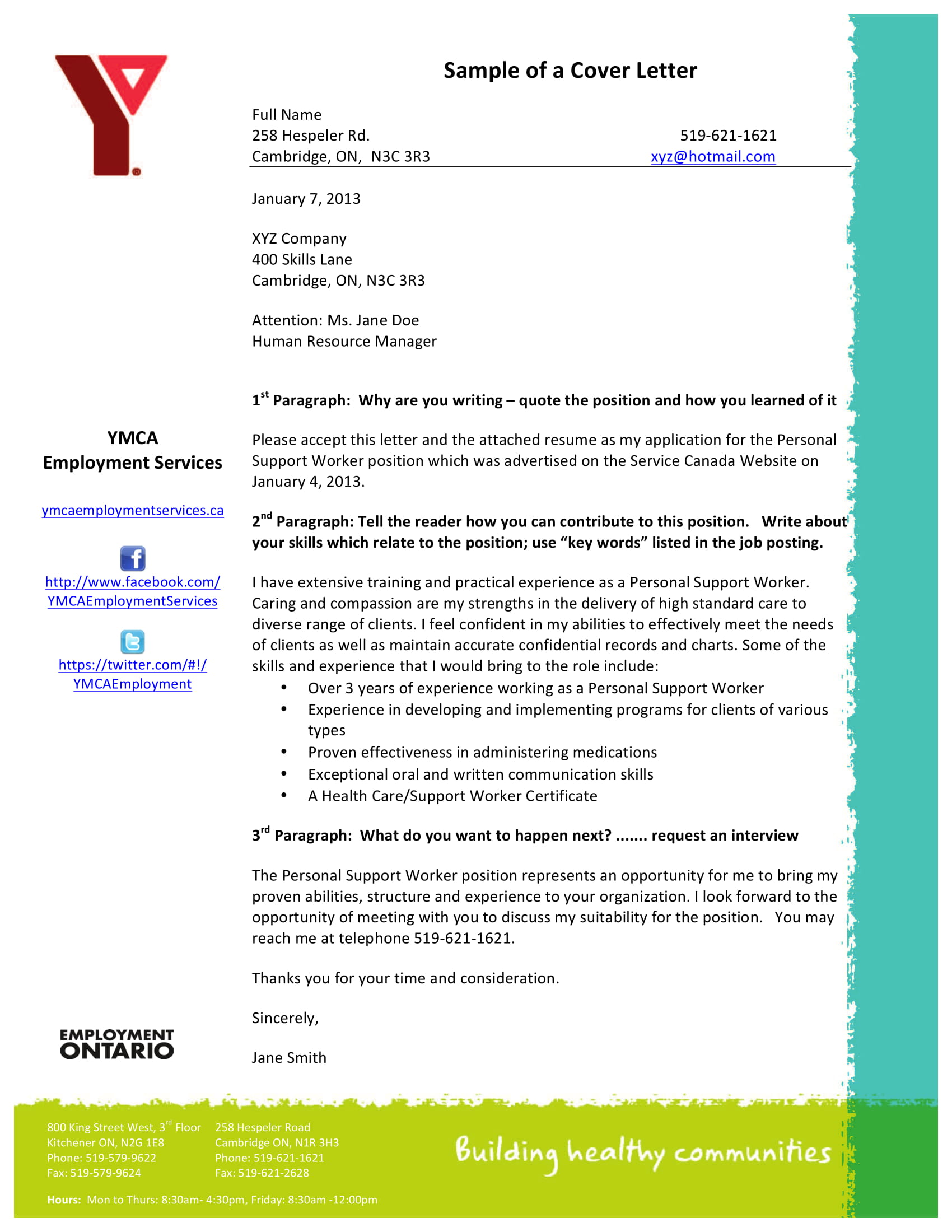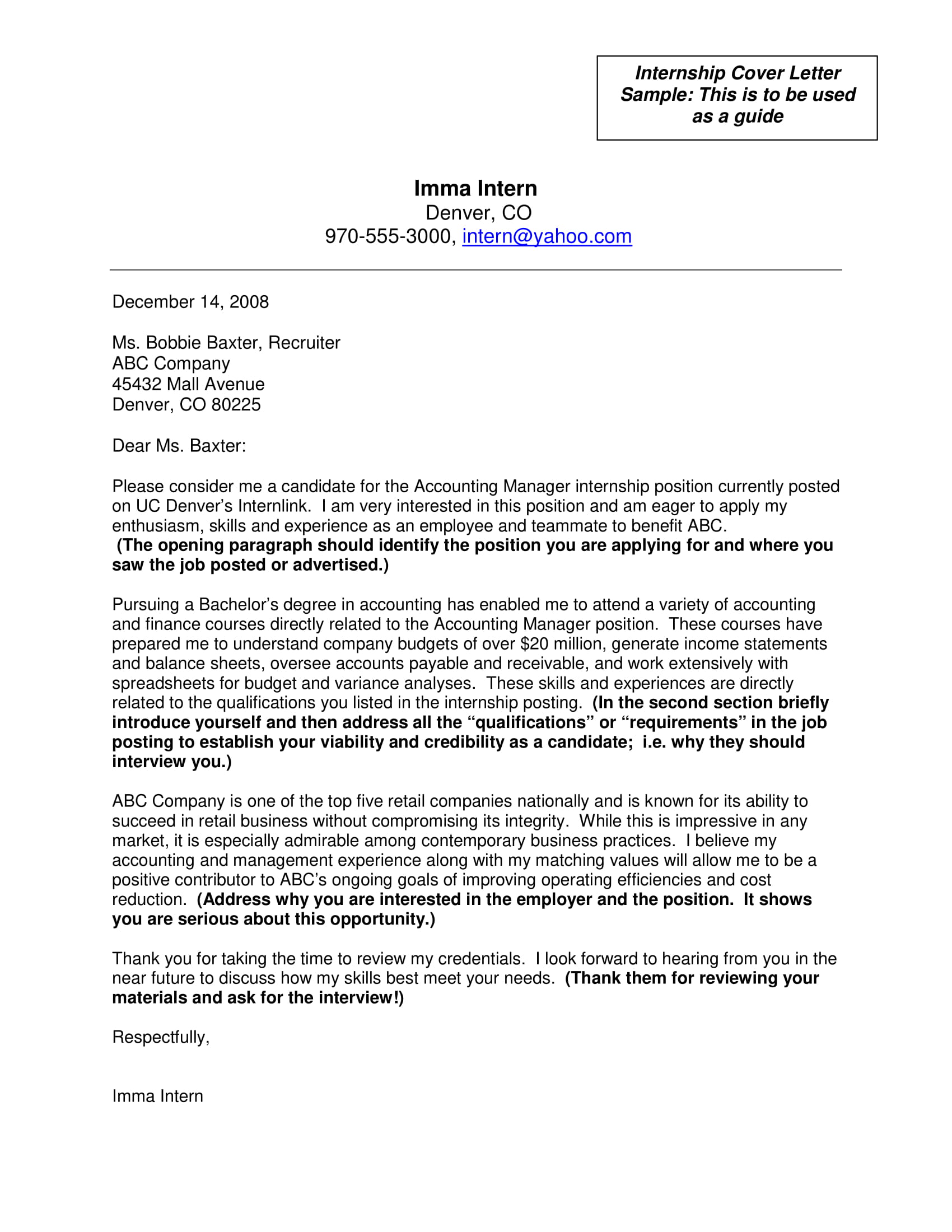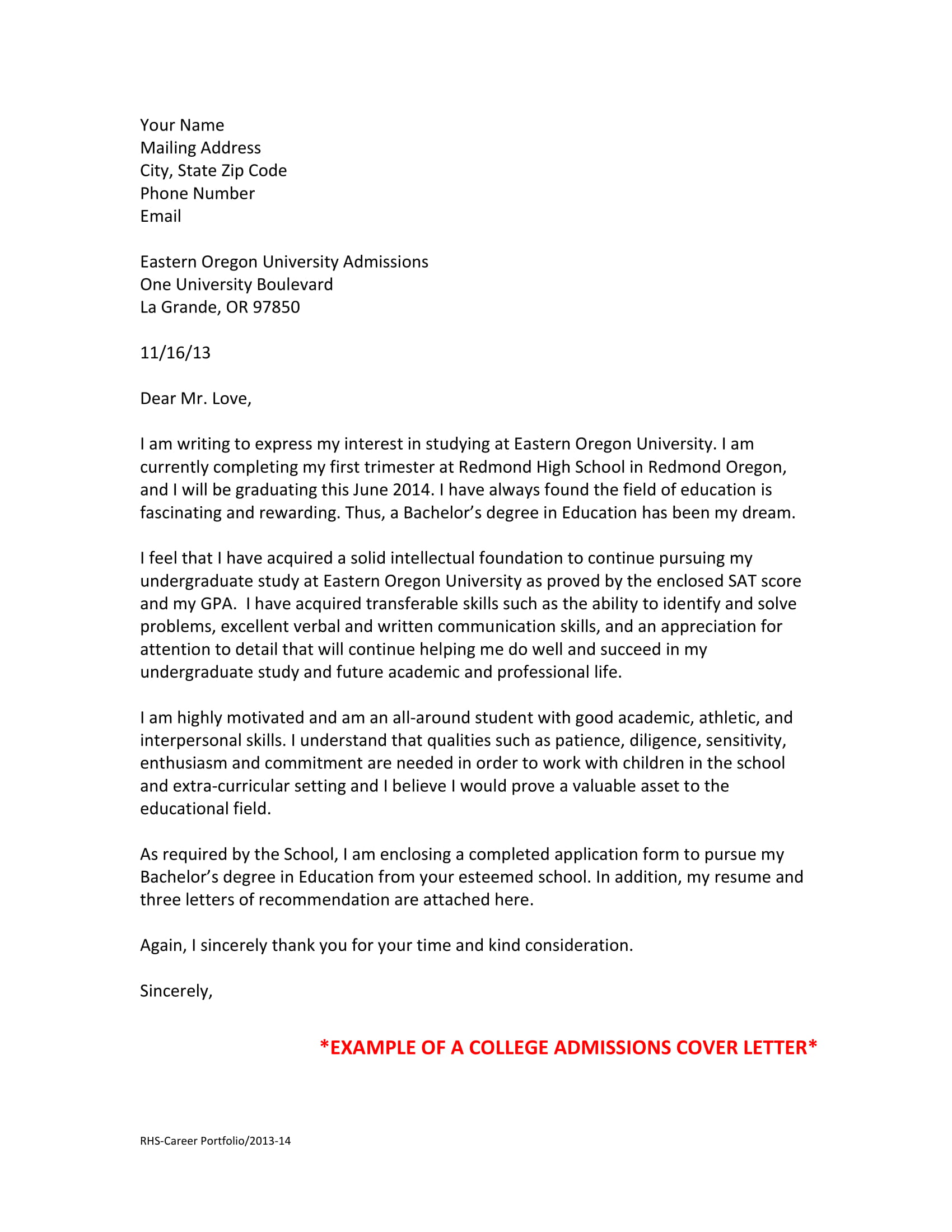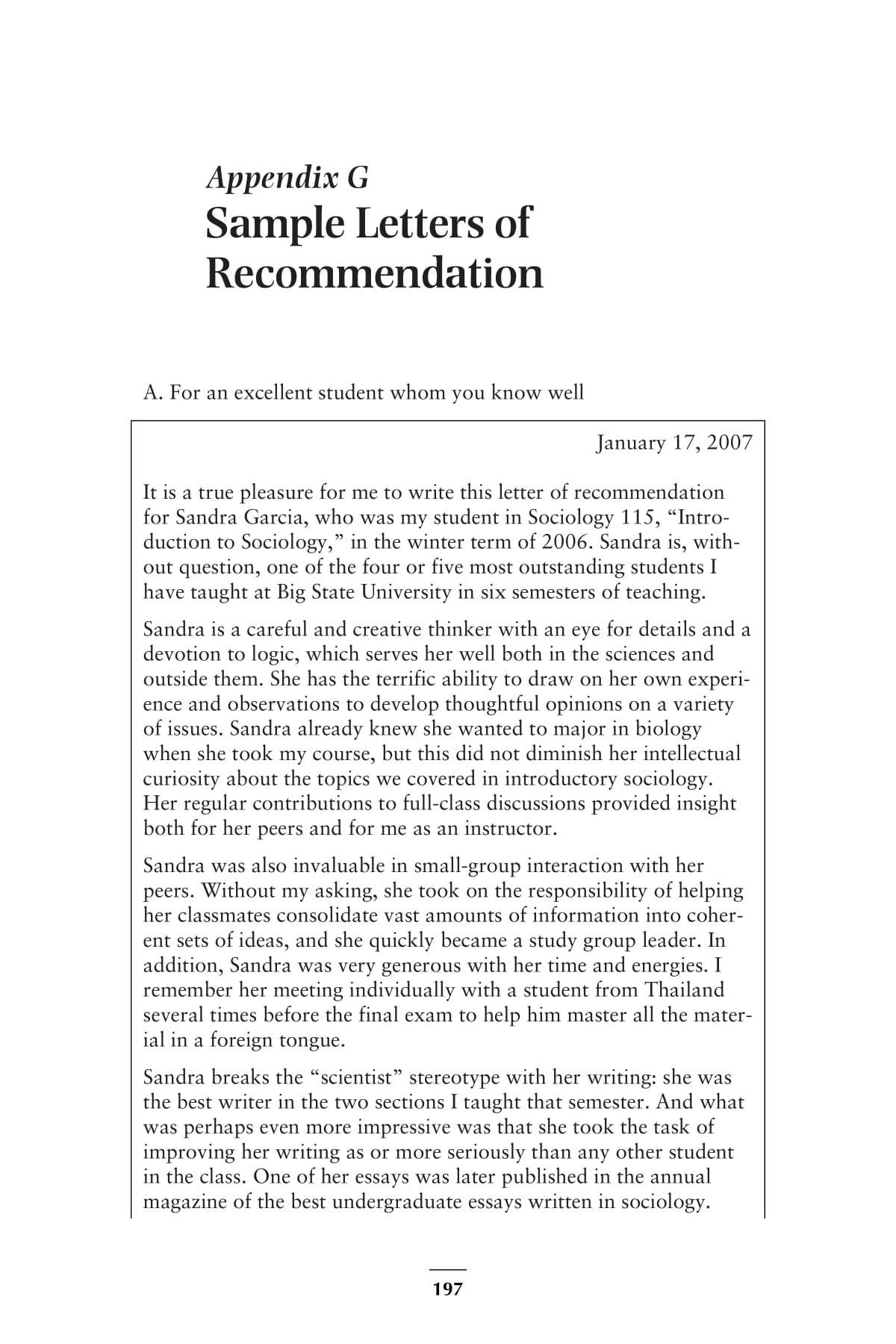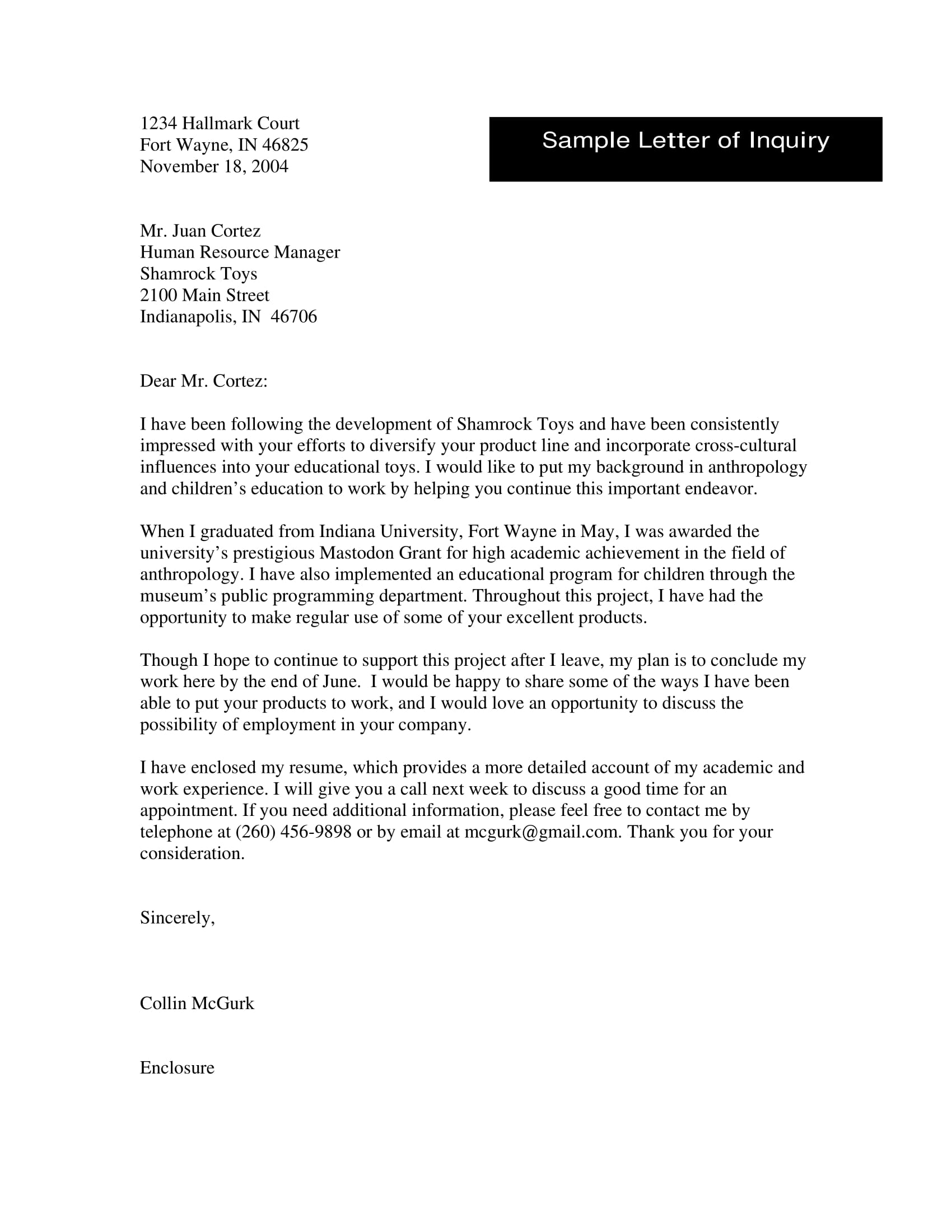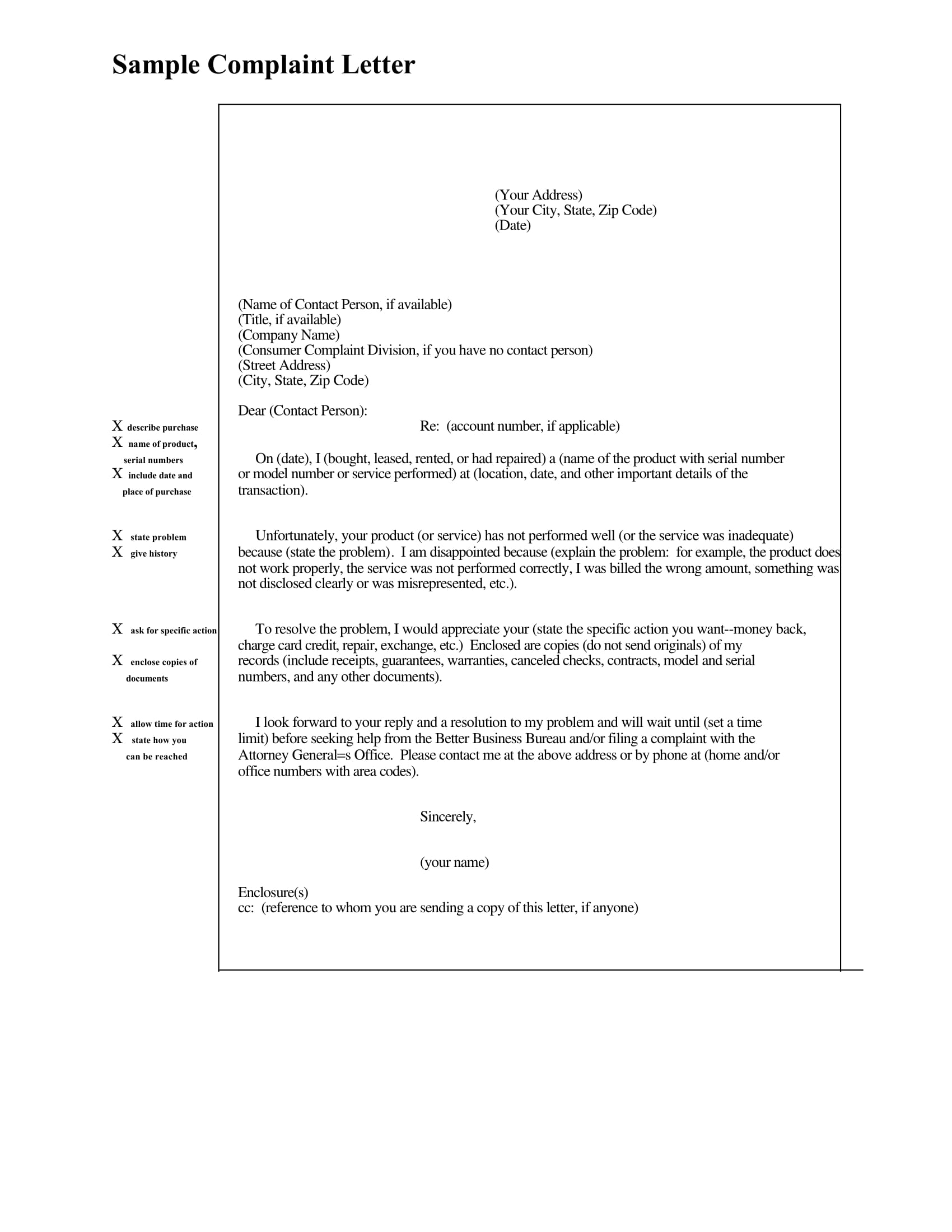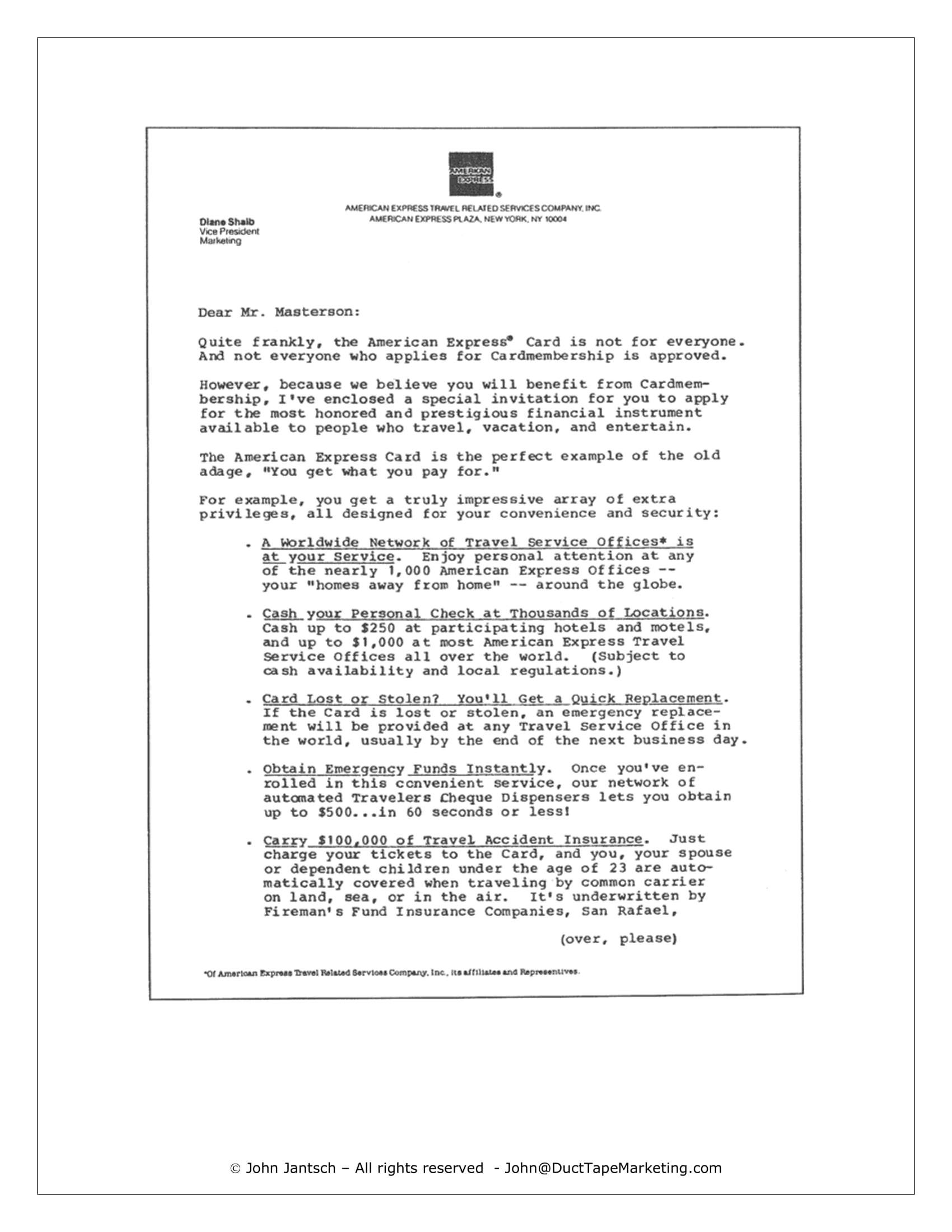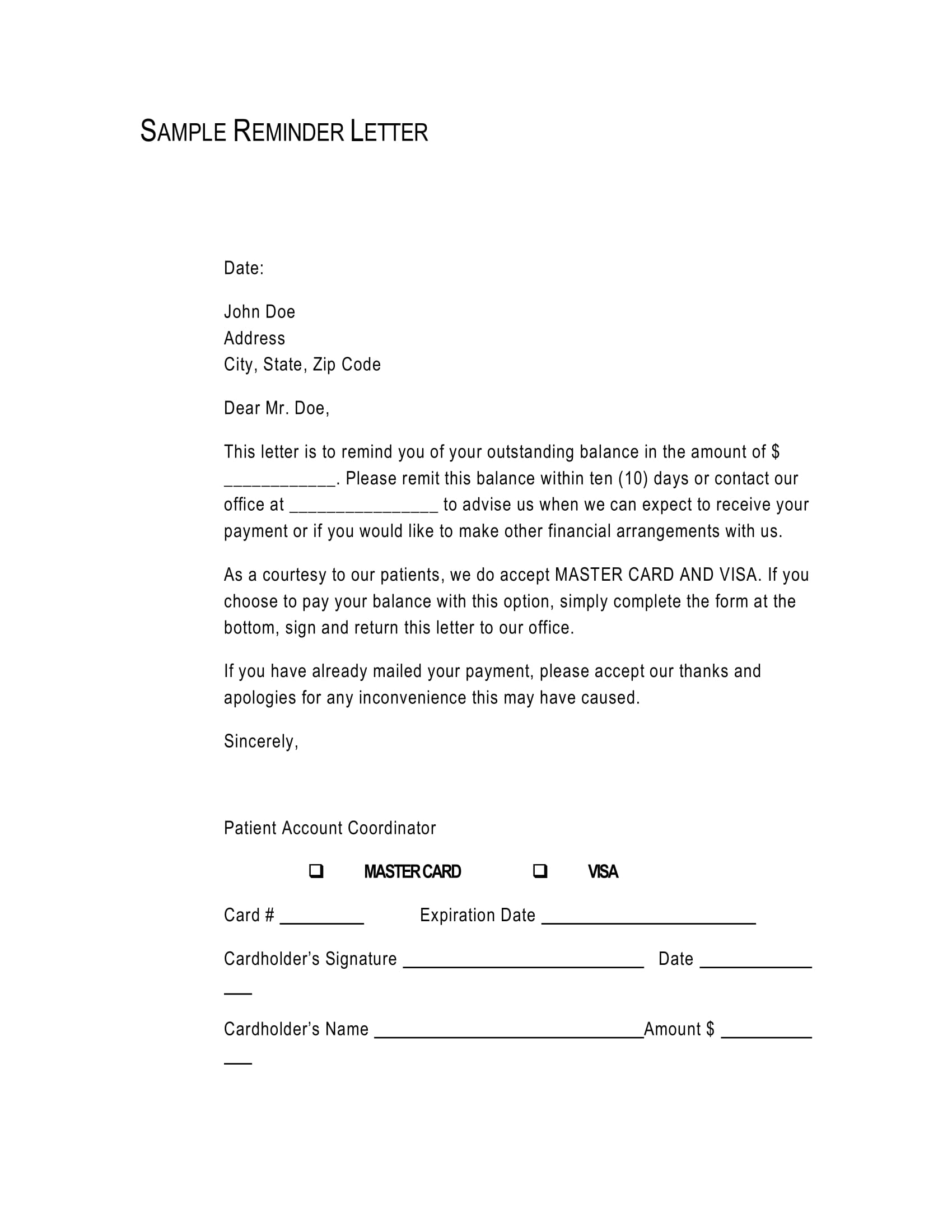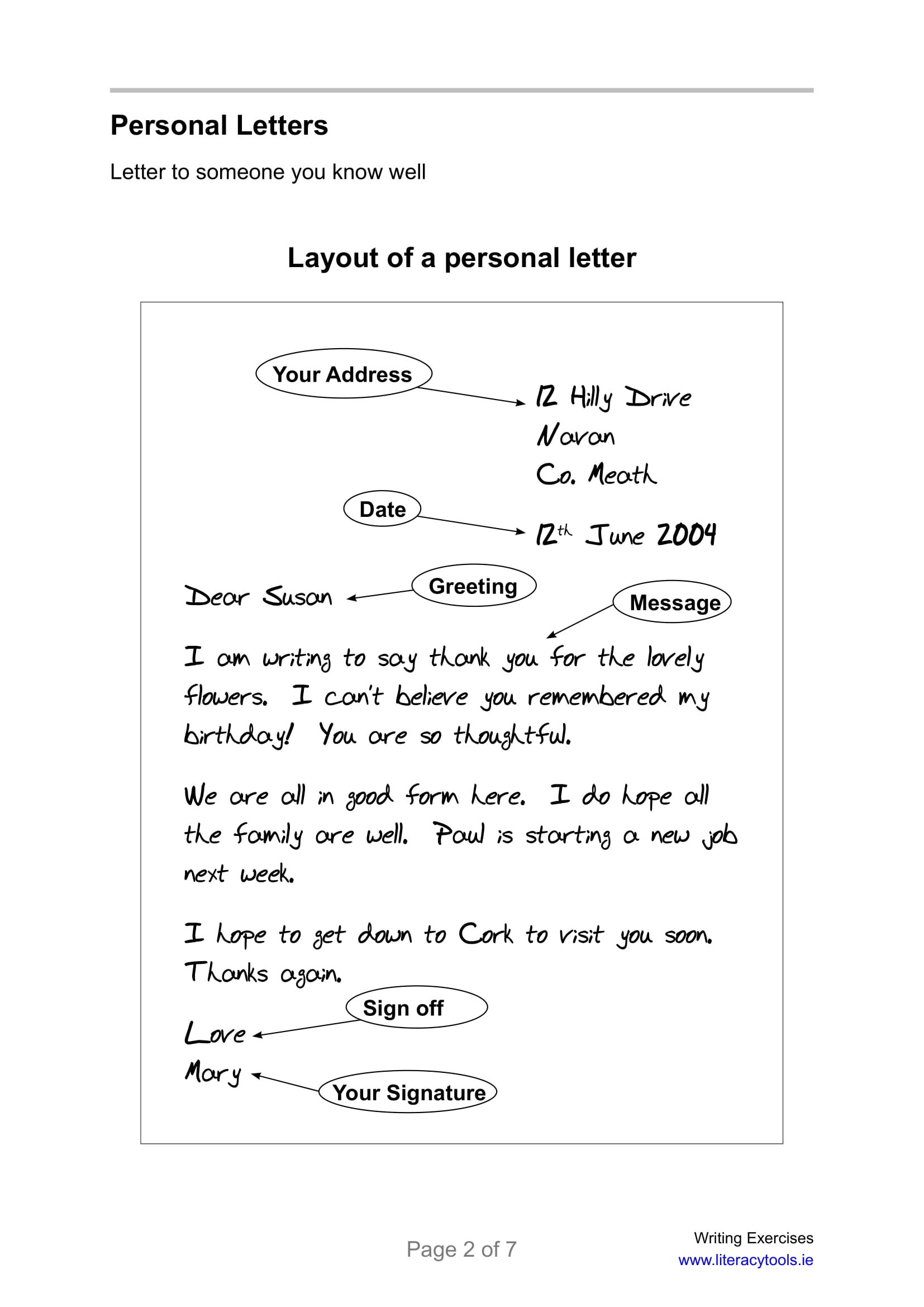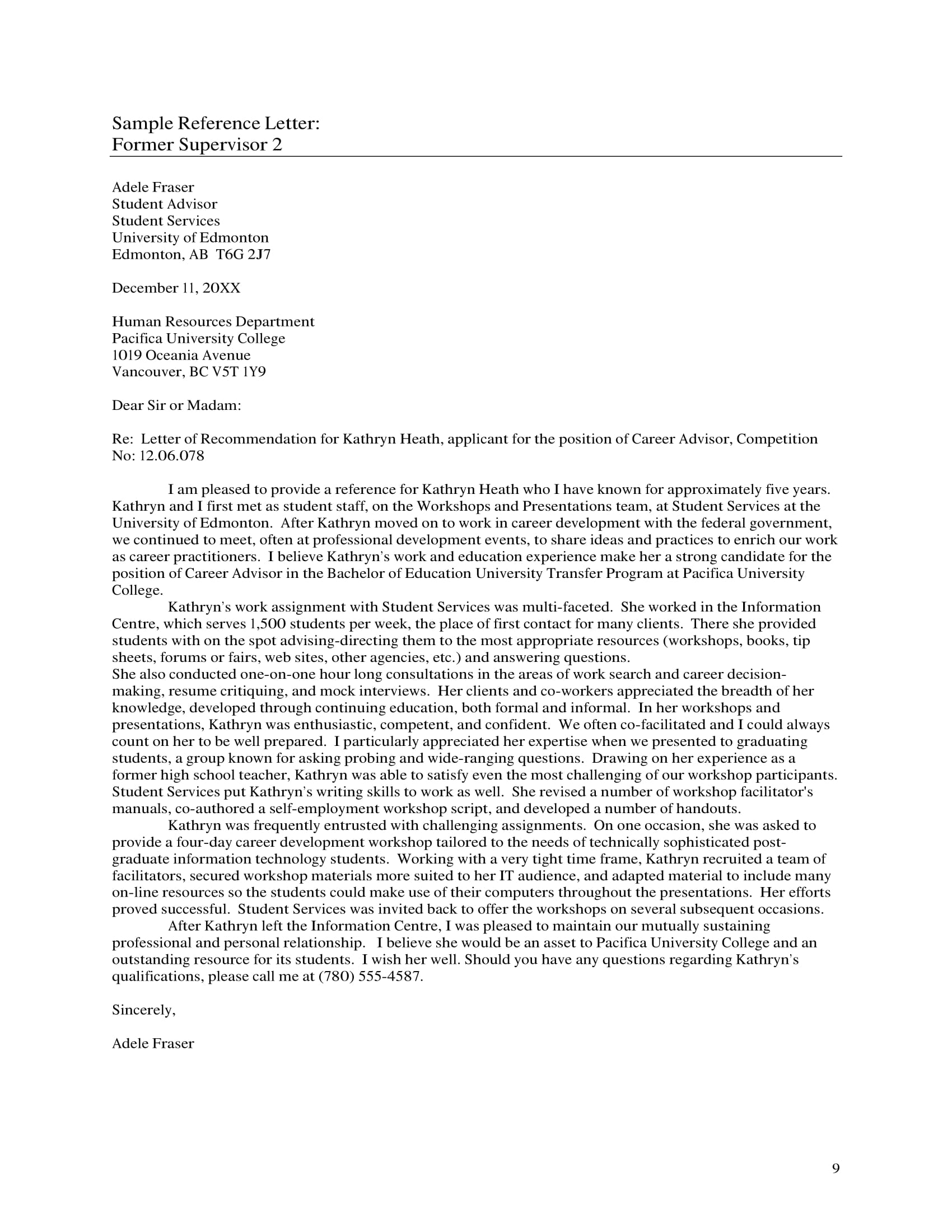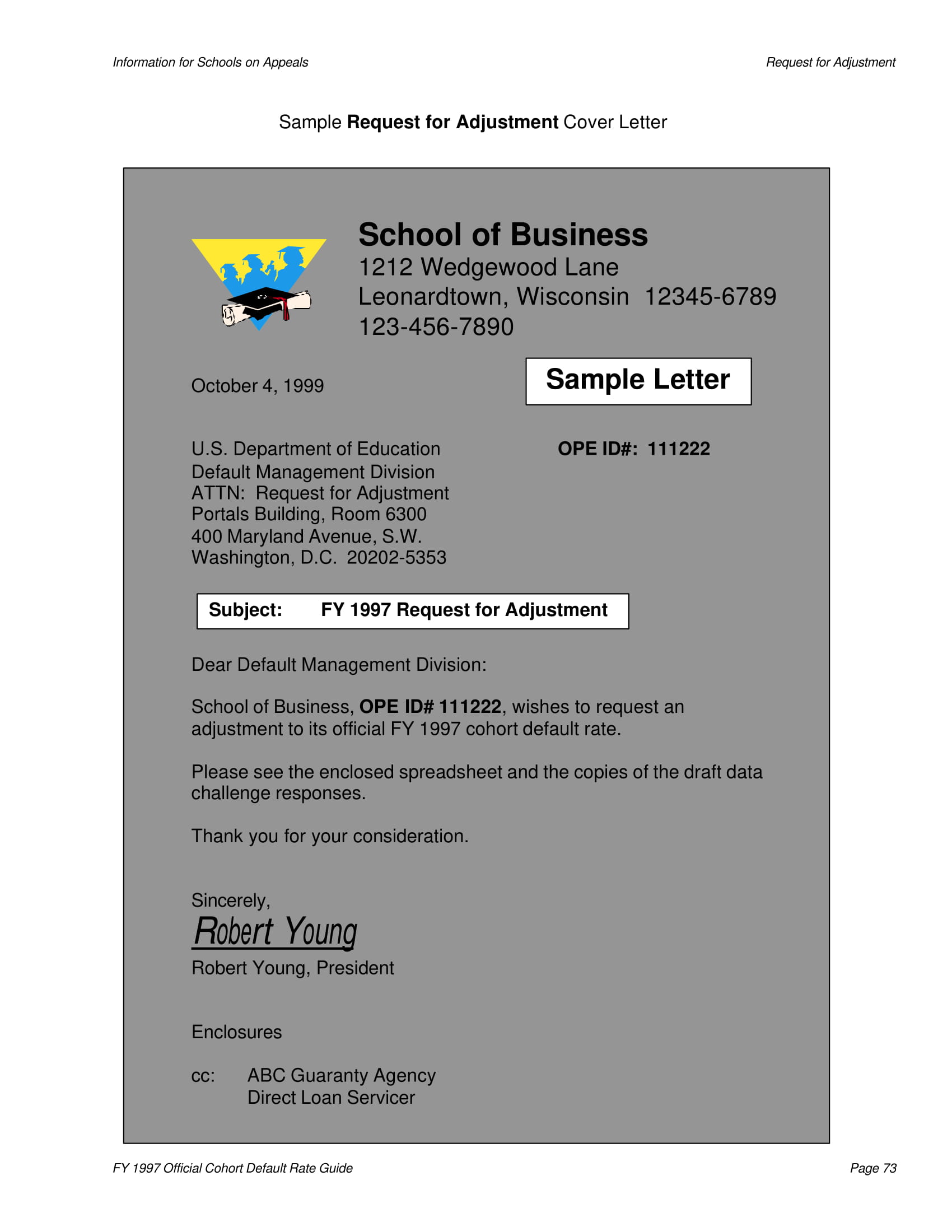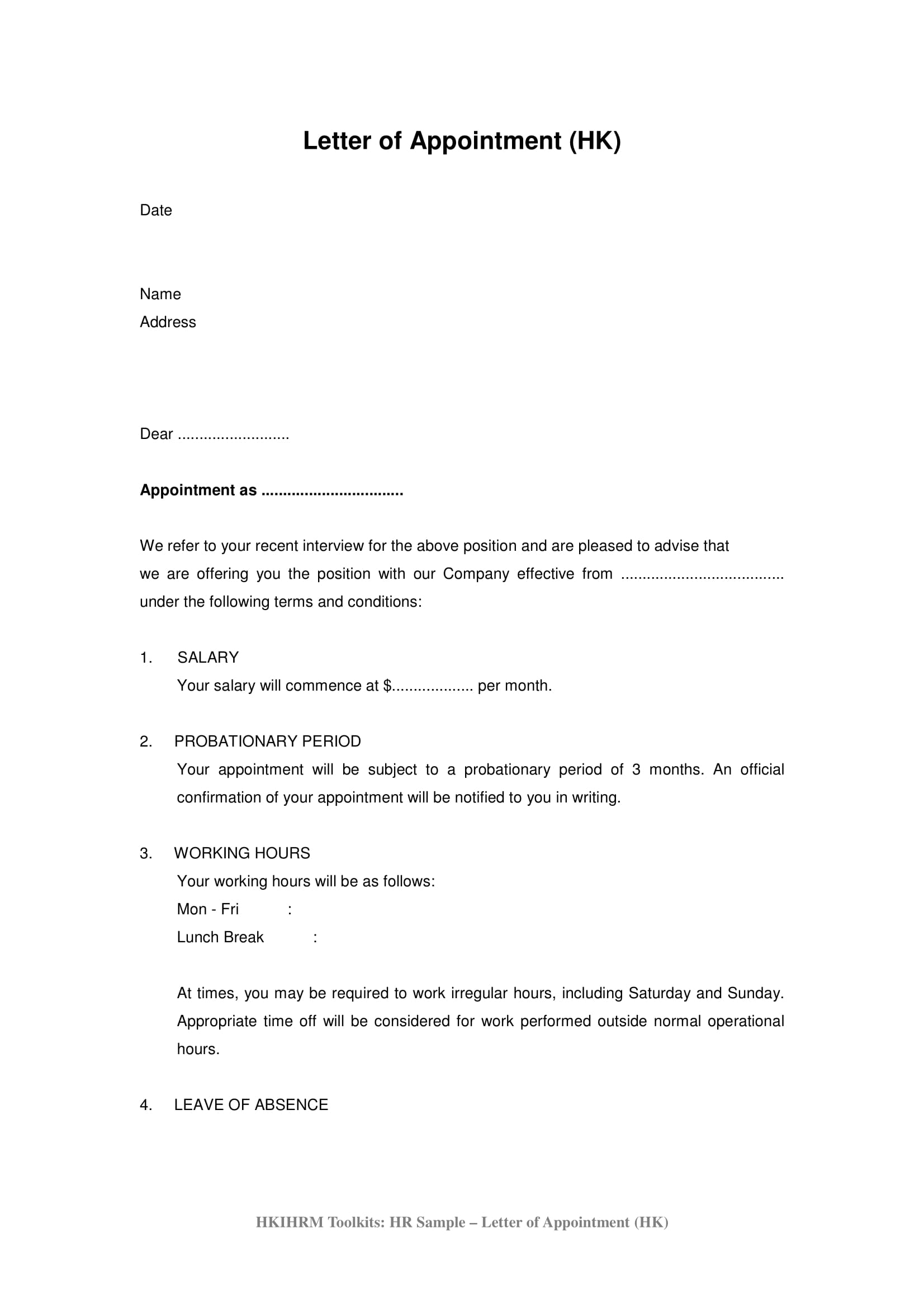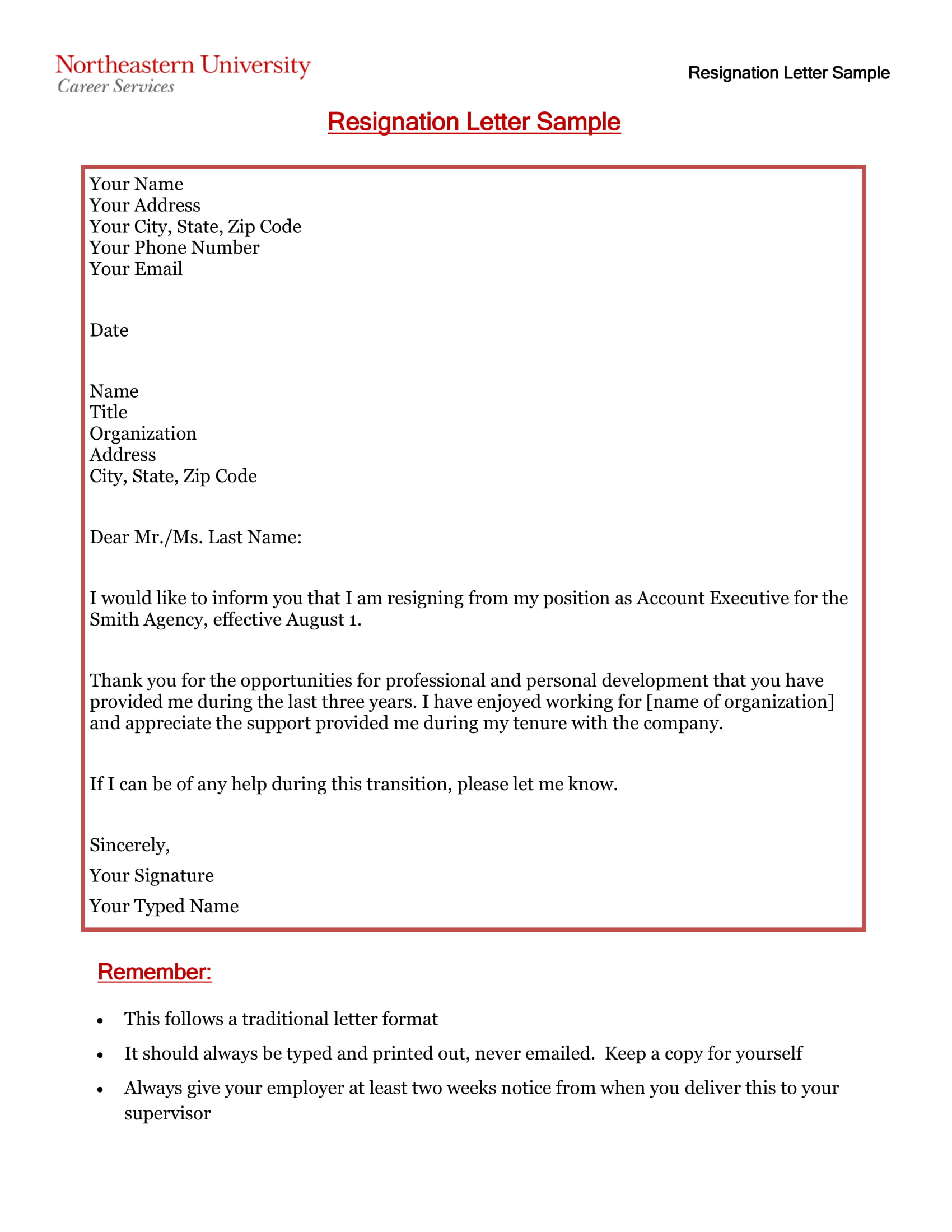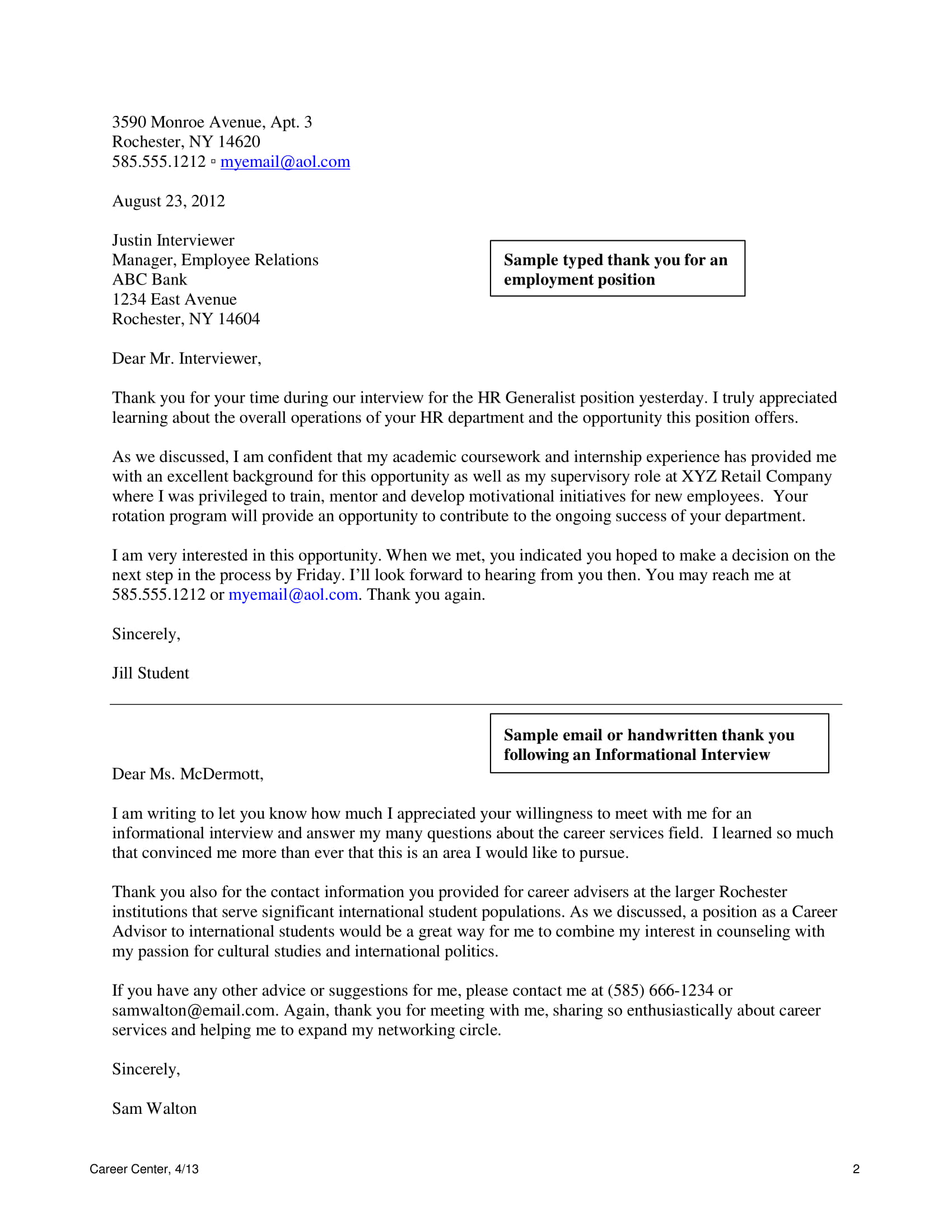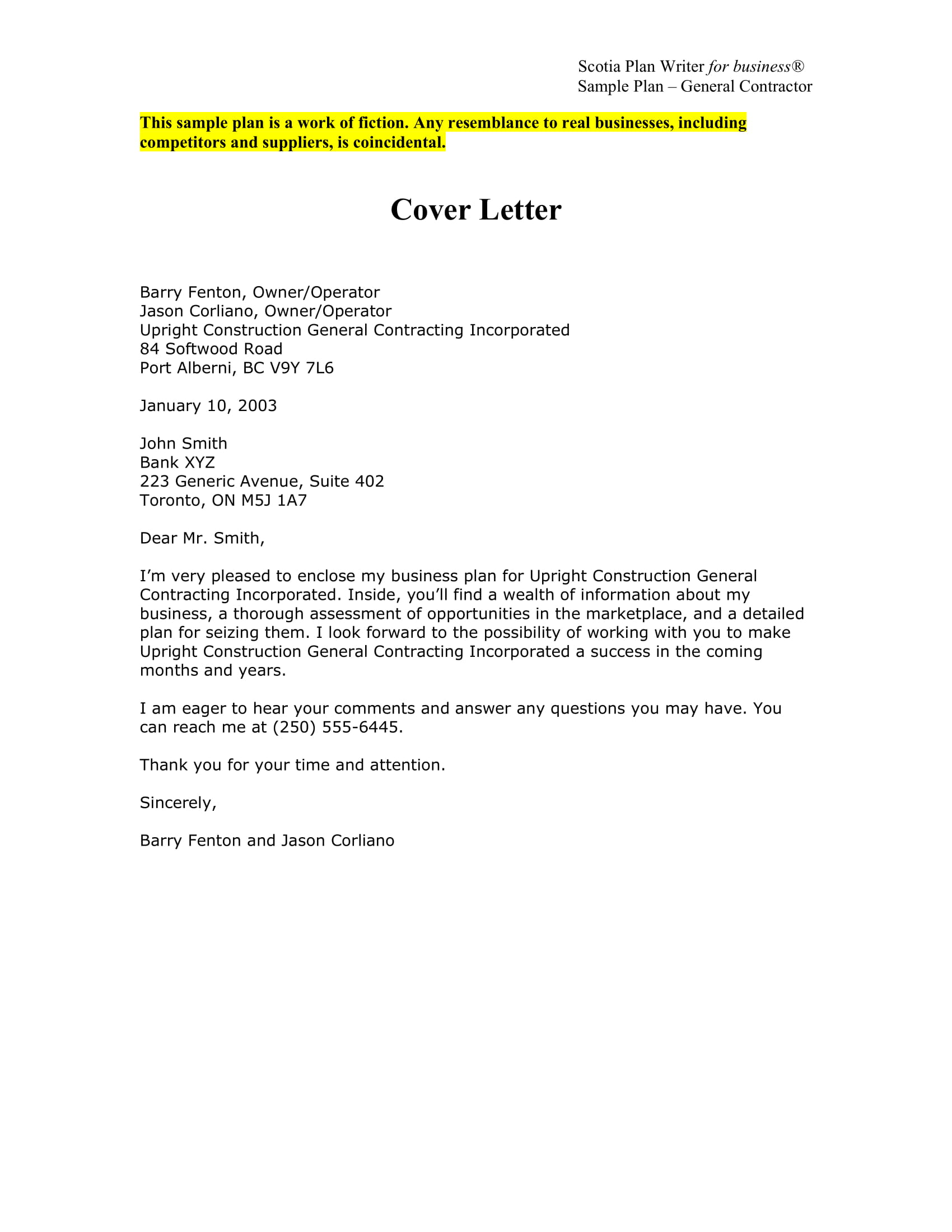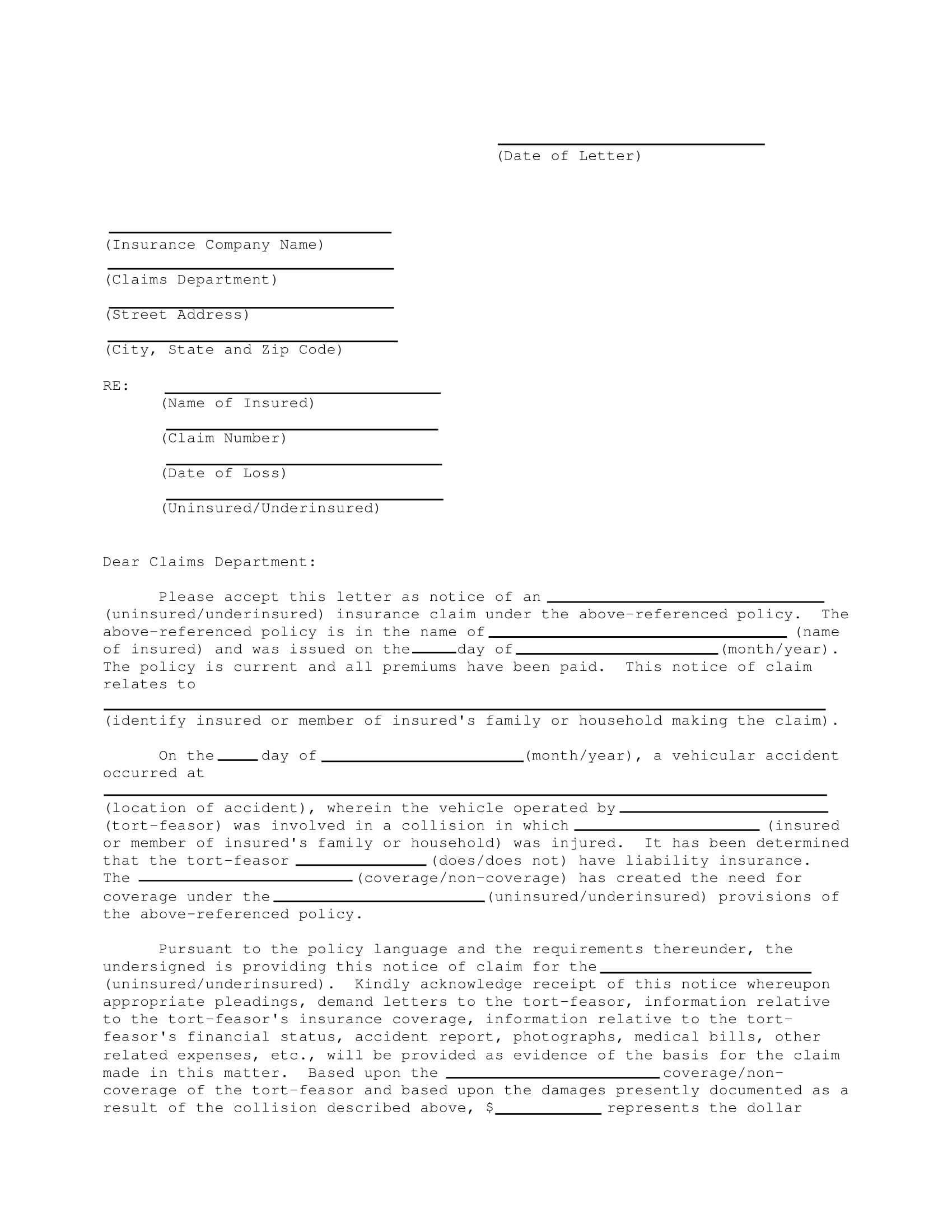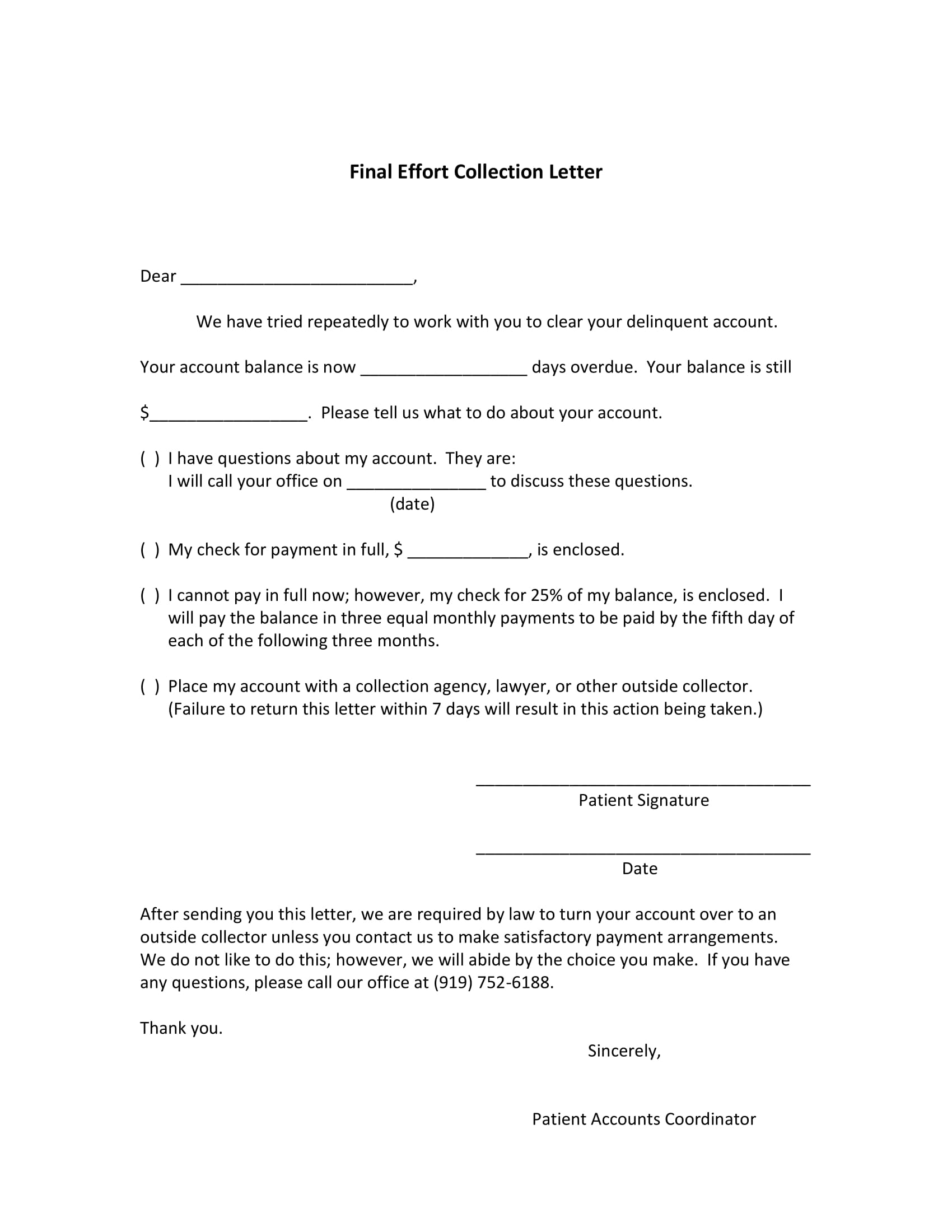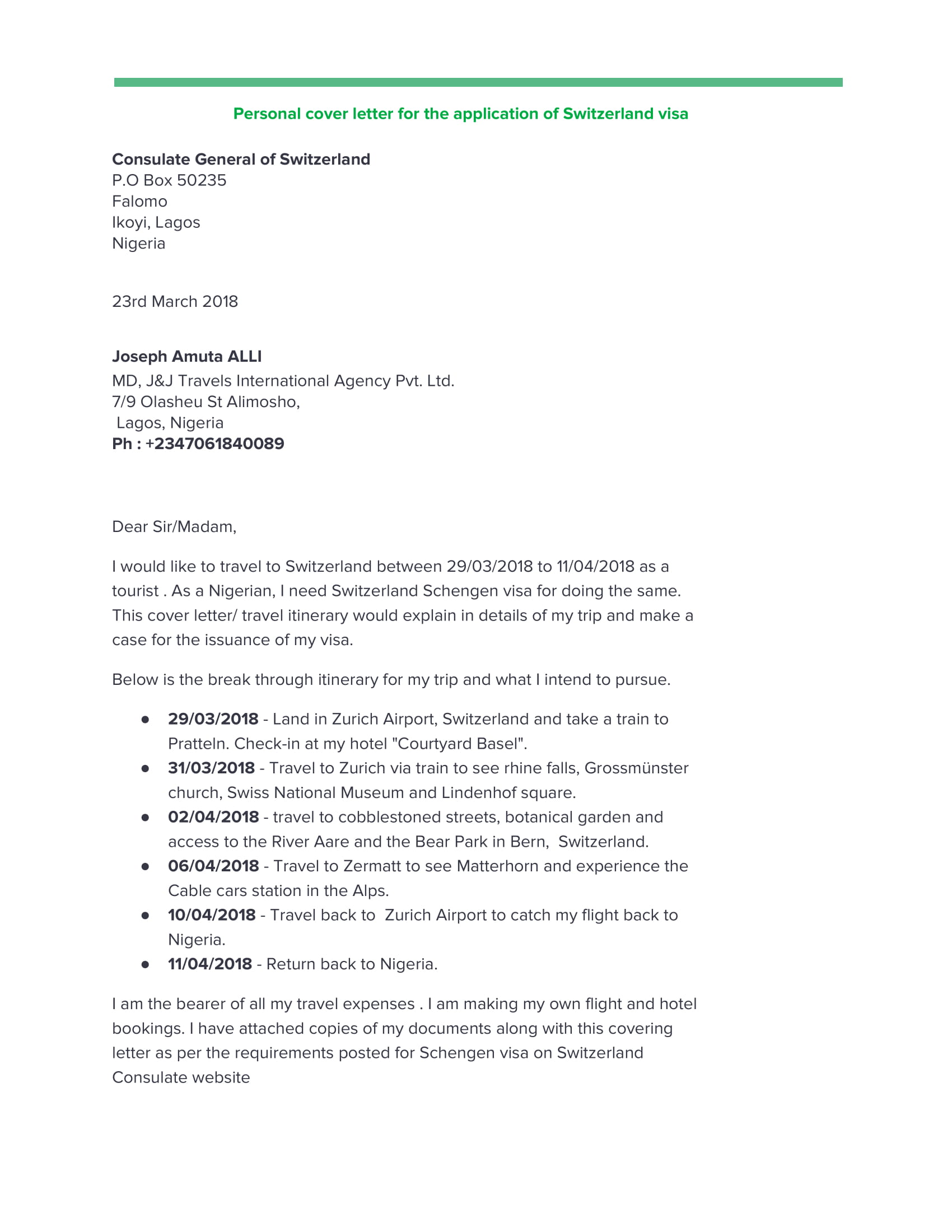35+ Letter Format Examples to Download
When people in the past wanted to communicate with one another over great distances, they often used letters as their method of correspondence. Even now, people still use letters as a way to communicate with one another.
What is Letter Format?
A letter format refers to the structured way in which a letter is organized and presented. It includes specific components and their arrangement on the page, ensuring clarity, professionalism, and ease of reading.
Format of letter
The format of a letter is a critical aspect of written communication, serving as a framework that organizes content in a clear, readable, and professional manner. It encompasses various components such as the sender’s and recipient’s addresses, date, salutation, body, closing, and signature.
1. Header
- Sender’s Address: The address of the person or organization sending the letter.
- Date: The date when the letter was written.
- Recipient’s Address: The address of the person or organization receiving the letter.
2. Salutation
- A polite greeting that addresses the recipient. In formal letters, it typically includes a title and the recipient’s last name, e.g., “Dear Mr. Smith,”.
3. Body
- The main content of the letter, organized into paragraphs. It starts with an introduction, followed by the letter’s purpose, and ends with a conclusion or call to action.
4. Closing
- A polite closing before the sender’s signature, e.g., “Sincerely,” “Best regards,”.
5. Signature
- The sender’s signature, followed by their printed name. In a business letter, the sender’s title and contact information may also be included.
6. Enclosures and CC
- If documents are attached to the letter, “Enclosures” is noted, followed by a list of the documents. If the letter is copied to another recipient, “CC” (carbon copy) is used, followed by the name of the other recipient.
Additional Elements (for formal or business letters):
- Subject Line: A brief summary of the letter’s purpose.
- Reference Line: If applicable, includes codes, case numbers, or invoice numbers related to the letter’s content.
Types of Letter Format
In letter writing, various formats are employed to suit different purposes and audiences. These formats dictate the structure, tone, and style of the correspondence, ensuring the message is conveyed effectively and appropriately. From formal business communications to casual notes among friends, understanding the types of letter formats is crucial for effective written communication.
1. Block Format
- Description: The most commonly used business letter format. All elements are aligned to the left margin, and paragraphs are not indented but separated by a double space.
- Use: Professional communications, including business inquiries, job applications, and formal requests.
2. Modified Block Format
- Description: Similar to the block format, but the sender’s address, date, closing, and signature start at the center point of the page rather than the left margin. The body of the letter aligns to the left.
- Use: Formal and semi-formal business letters where a slightly traditional appearance is desired.
3. Semi-Block Format
- Description: Like the modified block format, but paragraphs in the body of the letter are indented. This format is less common in modern business communications.
- Use: Business letters with a more traditional tone, where indented paragraphs are preferred for a structured look.
4. Full Block Format
- Description: Every part of the letter (sender’s address, date, recipient’s address, salutation, body, closing, and signature) starts at the left margin. Paragraphs are not indented but are separated by a blank line.
- Use: Official communications where a clean and formal structure is important.
5. Indented Format
- Description: A traditional format where the first line of each paragraph is indented. Dates and closing are usually aligned to the right.
- Use: Personal letters or when a more traditional, old-school approach is desired.
6. Simplified Format
- Description: Omits the salutation and closing, focusing instead on a subject line. All elements are left-aligned, and paragraphs are separated by a blank line.
- Use: Internal memos or business communications where formality is less of a concern.
7. Hanging Indent Format
- Description: The first line of each paragraph starts at the left margin, and the subsequent lines are indented. It’s more commonly used in bibliographies than in letters.
- Use: Specific documents or letters where referencing and citation are crucial, though rare in general correspondence.
Tips for Writng Letter
- Know Your Purpose: Clearly understand and state the purpose of your letter right from the beginning.
- Consider Your Audience: Tailor the tone and language of your letter based on who will be reading it.
- Follow the Correct Format: Use the standard letter format, including proper salutation, body, closing, and signature.
- Be Concise and Specific: Keep your message clear and to the point, avoiding unnecessary details.
- Start and End Strong: Begin with a clear statement of your main point and end with a polite closing.
- Proofread and Edit: Check for spelling, grammar, and punctuation errors, and ensure your message is clear.
- Personalize Your Letter: When appropriate, add a personal touch to make your letter more engaging.
- Use Quality Paper for Physical Letters: For formal letters, the quality of the paper can make a good impression.
- Include Contact Information: Ensure the recipient knows how to contact you for follow-up.
- Consider the Mode of Delivery: Choose the most appropriate method to send your letter, whether by email or post.
Types Of Letters with Samples
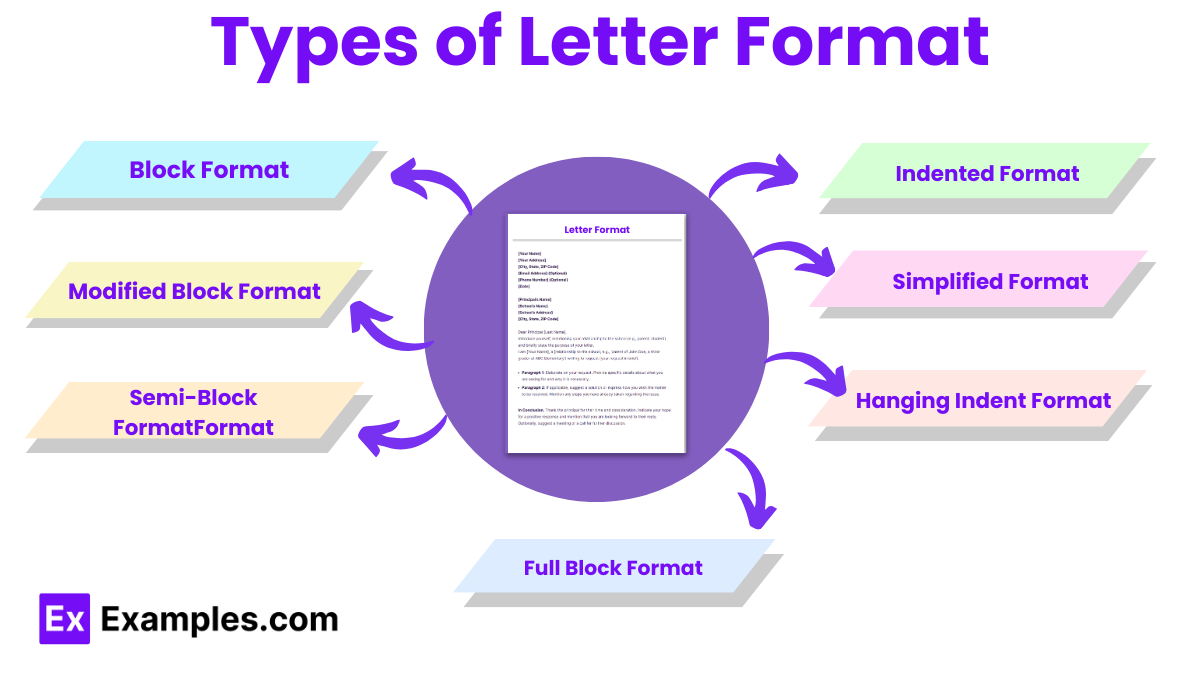
1. Formal Letters
Purpose: Used for professional or official communication.
Examples: Job applications, business proposals, official complaints, formal invitations, and resignation letters.
Sample:
Jane Doe
123 Main Street
City, State, ZIP
Email: jane.doe@email.com
Phone: (123) 456-7890
March 21, 2024Mr. John Smith
Manager
ABC Corporation
456 Corporate Blvd.
Industry City, State, ZIPDear Mr. Smith:
Subject: Application for Marketing Coordinator Position
I am writing to express my interest in the Marketing Coordinator position listed on ABC Corporation’s careers page. With a Bachelor’s degree in Marketing and three years of experience in a dynamic marketing agency, I am confident in my ability to contribute effectively to your team.
In my current role at XYZ Marketing Agency, I have successfully managed multiple high-profile projects from conception through to execution, demonstrating my ability to meet strict deadlines and budget requirements. My expertise in social media strategy and content creation, coupled with my strong analytical skills, have significantly increased engagement rates for our clients.
I am particularly drawn to ABC Corporation’s commitment to innovation and excellence in the marketing field, and I am eager to bring my background in digital marketing and project management to your esteemed company.
I would be thrilled to have the opportunity to further discuss how I can contribute to the ABC Corporation team. Please find my resume attached for your consideration. Thank you for taking the time to consider my application. I look forward to the opportunity to discuss my application in further detail.
Sincerely,
[Signature]
Jane Doe
Enclosures: Resume
2. Informal Letters
Purpose: Personal communication among friends, family, or acquaintances.
Examples: Catching up, sharing news, invitations for personal gatherings, or thank-you notes.
Sample:
Jessica Park
789 Country Lane
Smalltown, State, ZIP
March 21, 2024Dear Emily,
I hope this letter finds you well. It feels like ages since we last caught up, and I miss our long conversations and laughter. Life here in Smalltown has been the usual mix of calm and chaotic, but there’s always something comforting about the familiar, isn’t there?
I wanted to share some exciting news with you—I’ve finally started the pottery class I was talking about! It’s been an incredible experience so far, getting my hands dirty and actually creating something tangible. There’s a piece I’m working on that I think you’d love; it’s a mug with hand-carved designs inspired by our trip to the mountains last year.
How have things been on your end? How is the new job treating you? I remember you were a bit anxious about starting, but I have no doubt you’re doing amazingly. You always had a knack for adapting and excelling in whatever you set your mind to.
Let’s not let too much time pass before we see each other again. How about planning a weekend getaway next month? I’d love to hear your thoughts and catch up on everything in person.
Please give my best to Mark and the kids. I can’t believe how fast they’re growing!
Looking forward to hearing from you soon. Take care and write back when you can.
Warmest regards,
Jessica
P.S. I’ve included a photo of the pottery piece I mentioned. Can’t wait to hear what you think!
3. Business Letters
Purpose: Professional communication related to business transactions.
Examples: Letters of agreement, sales letters, order confirmations, and customer service correspondence.
Sample:
Alex Johnson
Marketing Director
Bright Solutions
123 Business Rd.
Commerce City, ST 01234
Email: alex.j@brightsolutions.com
Phone: (555) 678-9012
March 21, 2024Taylor Lee
Procurement Manager
Innovative Tech Supplies
456 Industry Park
Tech City, ST 98765Dear Taylor Lee,
Re: Inquiry About Bulk Order Discounts
I hope this letter finds you well. I am writing to inquire about potential discounts for bulk orders of computer components, as listed on your website.
Given our expanding operations, we are exploring cost-effective options for our tech supply needs. We are particularly interested in processors, motherboards, and memory units. Could you provide details on pricing, minimum order quantities, and delivery timelines for such orders?
Thank you for considering our inquiry. We are looking forward to building a mutually beneficial business relationship with Innovative Tech Supplies.
Sincerely,
Alex Johnson
Marketing Director
Bright Solutions
4. Cover Letters
Purpose: Accompanies a resume as part of a job application, highlighting a candidate’s qualifications.
Examples: Job application letters, internship application letters.
Sample:
Jordan Smith
123 Oak Lane
City, State, ZIP
jordan.smith@email.com
(123) 456-7890
March 21, 2024Hiring Manager
XYZ Corporation
456 Business Ave.
City, State, ZIPDear Hiring Manager,
I am writing to express my interest in the Graphic Designer position at XYZ Corporation, as advertised on your company website. With over five years of professional experience in graphic design and a strong portfolio of successful projects, I am confident in my ability to contribute effectively to your team.
At my current position with ABC Creative, I have developed and executed design concepts for a range of digital and print marketing materials, consistently meeting tight deadlines and client expectations. My expertise in Adobe Creative Suite, along with my creativity and attention to detail, has resulted in impactful designs that have significantly increased client engagement.
I am particularly drawn to XYZ Corporation’s innovative approach to digital marketing and would be thrilled to bring my skills in graphic design and visual communication to your esteemed team. I am eager to contribute to your projects and help achieve the company’s creative and business goals.
Thank you for considering my application. I look forward to the opportunity to discuss how my background, skills, and enthusiasms align with the needs of XYZ Corporation. Please find my resume and portfolio attached for your review.
Sincerely,
Jordan Smith
5. Recommendation Letters
Purpose: Recommends an individual for a specific job, position, or academic program.
Examples: Professional recommendation letters, academic reference letters, character reference letters.
Sample:
Dr. Lisa Monroe
Professor of Computer Science
University of Tech City
123 Academic Lane
Tech City, ST 45678
l.monroe@unitech.edu
(555) 123-4567
March 21, 2024Admissions Committee
Graduate School of Advanced Technology
456 Education Blvd.
Innovation City, ST 98765Dear Admissions Committee,
I am writing to wholeheartedly recommend Michael Chen for admission to your Master’s program in Computer Science. As Michael’s professor in several advanced programming courses at the University of Tech City, I have been consistently impressed with his analytical skills, dedication to learning, and ability to tackle complex problems.
Michael has demonstrated exceptional prowess in both theoretical and practical aspects of computer science. His project on machine learning algorithms was not only innovative but also showcased his skill in applying complex concepts to solve real-world problems. Michael is not just a brilliant student; he is also a team player who contributes significantly to group projects and willingly assists his peers.
I am confident that Michael will excel in your program and make substantial contributions to your academic community. His passion for computer science, combined with his proven abilities, makes him an ideal candidate for your program.
Please do not hesitate to contact me if you require further information or insights regarding Michael’s abilities and potential.
Sincerely,
Dr. Lisa Monroe
6. Complaint Letters
Purpose: Express dissatisfaction with a product, service, or situation, seeking resolution.
Examples: Customer complaint letters, tenant complaints to landlords.
Sample:
Morgan Rivera
123 Maple Street
Hometown, State, ZIP
morgan.rivera@email.com
(555) 123-4567
March 21, 2024Customer Service Department
Mega Electronics Inc.
456 Technology Drive
Tech City, State, ZIPDear Customer Service Manager,
I am writing to express my dissatisfaction with a recent purchase I made from your online store, specifically the HighTech Blender Model X500, which I received on March 14, 2024. Unfortunately, the blender has not operated as advertised, showing signs of malfunction from the first use.
Despite following all provided instructions, the device overheats and shuts down within minutes of use, making it impossible to blend even the softest ingredients. This issue significantly affects my daily routines, as I rely on the blender for meal preparations.
I kindly request a full refund or an exchange for a model that matches the quality and reliability promised by Mega Electronics. I have attached a copy of my purchase receipt and a video demonstrating the malfunction for your reference.
Thank you for your attention to this matter. I trust that Mega Electronics values its customers and will resolve this issue promptly. Please contact me at your earliest convenience to discuss the next steps.
Sincerely,
Morgan Rivera
Attachments: Purchase Receipt, Video of Malfunction
7. Inquiry Letters
Purpose: Request information or clarification about products, services, or policies.
Examples: Letters requesting product details, information requests to universities or businesses.
Sample:
Avery Kim
123 Willow Way
Springfield, ST 01234
avery.k@domain.com
(555) 234-5678
March 21, 2024Admissions Office
Prestige University
789 Education Blvd.
University Town, ST 98765Dear Admissions Officer,
I am writing to request additional information regarding the Master’s Program in Environmental Science offered at Prestige University. As a recent graduate with a Bachelor’s in Biology from Greenfield College, I am keenly interested in advancing my education and research in the field of environmental conservation.
Specifically, I would like to know more about the program’s curriculum, faculty research interests, and any available assistantships or scholarships. Additionally, information about the application process and deadlines for the Fall 2024 semester would be greatly appreciated.
Prestige University’s commitment to sustainability and environmental research deeply resonates with my academic goals and career aspirations. I am eager to learn how I can contribute to and benefit from the academic community at Prestige.
Thank you for your time and assistance. I look forward to receiving the requested information and considering Prestige University as the next step in my academic journey.
Sincerely,
Avery Kim
8. Sales Letters
Purpose: Promote or sell a product or service.
Examples: Direct mail marketing letters, email marketing letters.
Sample:
Jackson Patel
Director of Sales
BestClean Solutions
789 Clean Street
City, State, ZIP
sales@bestcleansolutions.com
(555) 234-5678
March 21, 2024To All Prospective Clients,
Are you tired of cleaning agents that promise much but deliver little? Look no further! BestClean Solutions is excited to introduce our latest innovation – the EcoClean Pro, a revolutionary cleaning solution that combines effectiveness with environmental friendliness.
Why EcoClean Pro?
- Powerful Cleaning: Say goodbye to stubborn stains and hello to sparkling surfaces with minimal effort.
- Eco-Friendly: Made from 100% biodegradable ingredients, protecting our planet for future generations.
- Cost-Efficient: A little goes a long way, offering you more cleans per bottle than any other brand.
For a limited time, we’re offering a 20% discount on your first purchase. Experience the difference for yourself and join our family of satisfied customers who trust EcoClean Pro for their cleaning needs.
Don’t miss out on this opportunity to make your cleaning routine easier, safer, and more environmentally friendly. Order now by visiting our website or calling us directly at (555) 234-5678.
Thank you for considering BestClean Solutions. We look forward to serving you!
Warmest regards,
Jackson Patel
Director of Sales, BestClean Solutions
9. Resignation Letters
Purpose: Officially announce the writer’s intention to leave their job position.
Examples: Formal resignation letters, retirement letters.
Sample:
Alex Martin
Software Engineer
123 Coding Ave
TechTown, State, ZIP
alex.martin@email.com
(555) 678-9012
March 21, 2024Ms. Sarah Johnson
Head of Development
Innovative Tech Solutions
456 Developer Road
TechCity, State, ZIPDear Ms. Johnson,
I am writing to formally announce my resignation from my position as Software Engineer at Innovative Tech Solutions, effective two weeks from today, April 4, 2024. This decision has not been easy and took considerable thought, but due to personal reasons, I believe it is in my best interest to step down.
I want to express my sincere gratitude for the opportunities for professional and personal development that you have provided me during the last three years. I have enjoyed working for the company and appreciate the support provided me during my tenure with the company.
I am willing to assist during this transition to ensure a seamless handover of my responsibilities. I would be happy to help train my replacement or aid in the recruitment process if necessary.
Thank you again for the opportunity to be a part of Innovative Tech Solutions. I look forward to staying in touch, and I hope our paths cross again in the future.
Sincerely,
Alex Martin
10. Adjustment Letters
Purpose: Respond to a complaint or request, offering a solution or compensation.
Examples: Customer service response letters, warranty claims responses.
Sample:
Janet Lee
Customer Service Manager
HappyTech Electronics
123 Gadget Street
Innovate City, State, ZIP
service@happytech.com
(555) 123-4567
March 21, 2024Mr. Kevin Brown
789 Technology Ave
Gadgetown, State, ZIP
kevin.brown@email.comDear Mr. Brown,
Thank you for bringing to our attention the issue with your recently purchased HappyTech SmartWatch, Model X200, which you reported to us on March 14, 2024. We sincerely apologize for the inconvenience this has caused you.
After reviewing your case, we have determined that the malfunction you experienced is indeed covered under our warranty policy. As such, we are pleased to offer you the following options as an adjustment:
- A Full Replacement: We can send you a new Model X200 SmartWatch at no additional cost.
- A Refund: If you prefer, we can issue a full refund of your purchase price.
Please let us know which option you would prefer by contacting our customer service team at (555) 123-4567 or via email at service@happytech.com. We aim to resolve this matter swiftly to your satisfaction.
We value your business and are committed to ensuring our customers are fully satisfied with their purchases. Please accept our apologies once again, and thank you for your understanding and patience.
Sincerely,
Janet Lee
Customer Service Manager
HappyTech Electronics
10+ Letter Examples
- Letter of Agreement
- Business Agreement Letter
- Offer Letter Employee Agreement
- Proposal Letter
- Request Letter
- Resignation Letter
- Leave Letter
- Recommendation Letter
- Authorization Letter
- Notice Letter
- Official Statement Letter
- Letter of Verification
- Formal Letter
- Informal Letter
Employment Cover Letter Template Example
Internship Cover Letter Example
College Application Letter Example
Recommendation Letter Example
Inquiry Letter Example
Complaint Letter Example
Sales Letter Example
Reminder Letter Example
Personal Letter Layout Example
Reference Letter Example
Adjustment Letter Example
Appointment Letter Example
Resignation Letter Example
Thank You Letter Example
Business Proposal Cover Letter Example
Claim Letter Example
Collection Letter Example
Immigration Application Letter Example
How to Write a General Letter
All letters follow a strict format and structure that you will need to adhere to and follow. If you need a reference for your letter-writing efforts, you may use any of the letter templates, letter examples, and letter samples on the list above.
Step 1: Select the Subject of the Letter
Begin by selecting the subject of the letter. This will determine the theme, tone, and content you will write in the letter.
Step 2: Write Down the Address of the Reciever
After you have selected the letter, you will need to write down the receiver’s address on the top portion of the letter. Be sure the letter address is properly formatted and has the current contact information of the receiver.
Step 3: Properly Write the Salutation
Be sure to properly write and address the salutation to the correct person. This is because the salutation will indicate the person who will need to read the letter.
Step 4: Write the Body of the Letter
When you have finished writing the salutation, you will now create the body of the letter. Be sure to properly observe the paragraph structure and proper punctuation.
Step 5: Properly Sign Off the Letter
The letter will need to be properly signed off, which means you will need to properly format the complimentary close. Examples of the complimentary close include best regards, sincere, and best wishes.
FAQs
What is Standard Letter Format?
The standard letter format is a widely accepted structure for professional and formal correspondence. It typically includes a header with the sender’s and recipient’s addresses, date, salutation, body, closing, and signature. It ensures clarity and professionalism in communication.
What is Traditional Letter Format?
Traditional letter format refers to the classic way of structuring letters, which includes the sender’s address, date, recipient’s address, salutation, body, complimentary close, and signature. It’s often used for formal or personal correspondence, emphasizing respect and formality.
What is the Good Format of Formal Letter?
A good format for a formal letter includes a sender’s address, date, recipient’s address, formal salutation, clear and concise body paragraphs, formal closing, and the sender’s signature. This format is essential for professional, academic, or official communications.
What are the Three Basic Letter Formats?
The three basic letter formats are:
- Block Format: All elements aligned to the left margin.
- Modified Block Format: Dates and closings begin at the center.
- Semi-Block Format: Similar to block, but paragraphs are indented.
What are the 4 Basic Letter Formats?
The four basic letter formats include:
- Block Format: Everything aligned to the left.
- Modified Block Format: Sender’s address, date, and closing centered.
- Semi-Block Format: First line of each paragraph indented.
- Full Block Format: Similar to block but with a more formal presentation.
How Many Parts are Included in Traditional Letter Format?
Traditional letter format typically includes seven main parts: sender’s address, date, recipient’s address, salutation, body of the letter, complimentary close, and signature. These components ensure the letter is properly structured and easy to follow.
How Do You Make an Old Fashioned Letter?
To make an old-fashioned letter, use high-quality paper and a pen for a personal touch. Start with the sender’s address at the top, followed by the date, recipient’s address, a formal salutation, handwritten body text, a polite closing, and your signature. Optionally, seal it with wax for a vintage feel
What is the difference between an e-mail and a letter?
An e-mail or electronic mail is a digital document that a person sends to another in a digital space or landscape. Not only do e-mails have a different format, but people can only send and receive emails through the use of online e-mail service providers. This means the person is required to have an internet connection. A letter is a juxtaposition of the digital form an e-mail has because letters are physically written or typed documents that people will send through postal services. Another difference both types of messaging have is related to the speed the receiver will obtain the document. Emails are generally faster than letters due to their inability to quickly traverse physical distances.
What is the tone of a letter?
A letter is a formal document that a person will write about a specific topic or concern, which the person will send to its intended receiver. The context and the subject matter of the letter will dictate the tone and theme of the letter. For example, if one were to send a cover letter with their general resume to the HR of a specific company, then the letter’s tone would be professional. But if one were to send a casual letter to a friend, then one can adopt a more casual and friendly tone. In conclusion, the tone of the letter is highly dependent on the overall subject the person wants to address in the letter.
Why do you need to submit a resignation letter to resign from your position?
In truth, one does not need to submit a resignation letter or a letter of resignation to resign from one’s position unless one’s contract specifies it. A resignation letter or a 2-week notice is a formal way of informing one’s employer of one’s intent to resign. Not only will it allow the employer a wiggle room for dialogue and proper dissemination of work, but the resignation letter will also ensure that the person will leave their previous employer with good relations or on good terms. Therefore, you should submit a resignation letter to prevent or minimize grievances from your previous employment.
A letter is a written or typed document with the intent to relay a specific message to a person about a chosen subject. A well-written letter can properly relay the intended information without any room for misinterpretation or misunderstanding. Therefore, the person needs to know how to properly write and address the letter.



